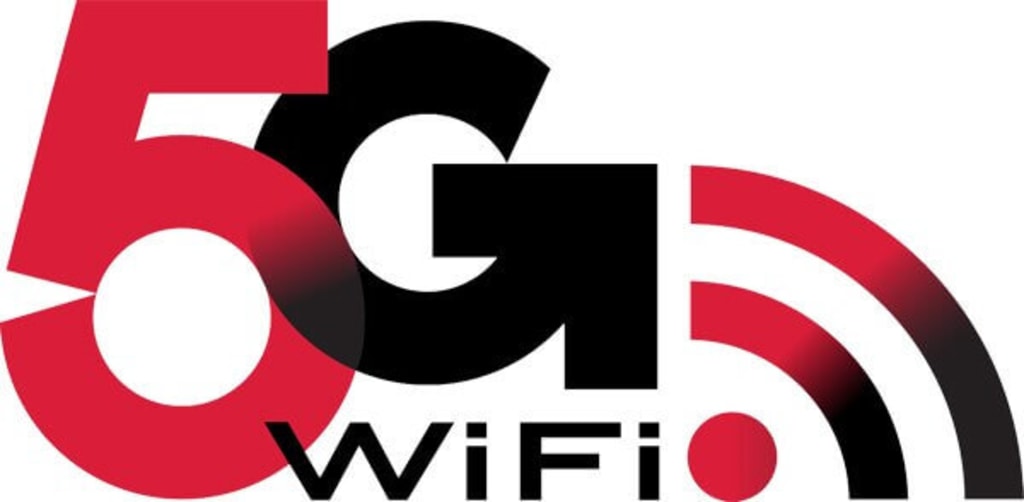The benefits and drawbacks of 5G technology
Comlink offers 5G home internet services for consumers in the United States. Get the best internet speeds to surf internet seamlessly and watch your favorite videos or movies online in HD without any buffering. Enjoy the high-speed internet with Comlink internet services.

Cellular networks nowadays employ the most modern technology to deliver the finest services to mobile phone customers. 5G home internet is a fifth-generation cellular network technology that provides customers with additional benefits. It is gradually replacing 4G networks in many regions of the globe, which respond to the demands of smartphone users while accessing data. The network helps people and developers by allowing them to launch programs more quickly. On the other hand, it is essential to understand the benefits and drawbacks of 5G home internet technology to make an informed selection.
Advantages of 5G
High-speed travel
Compared to 4G and 4G LTE, 5G home internet is quicker on mobile phones and other devices. It saves customers time by downloading movies, videos, and music in seconds rather than minutes. Organizations may utilize the network's 20 Gbps speed for services like automation, enhanced web conferencing, and more. According to a recent study, users who used, 5G home internet saved roughly 23 hours on downloading.
Latency is low.
When compared to 4G, 5G home internet offers lower latency, making it ideal for emerging applications like AI, IoT, and virtual reality. Not only that, but it allows users of mobile phones to access a website and explore without difficulty. Another advantage is that it will enable users to access the internet at any moment when they need critical information.
Capacity expansion
5G home internet has the potential to give 100 times the capacity of 4G. It enables businesses to transition between cellular and Wi-Fi wireless solutions, significantly improving performance. Aside from that, it provides high-efficiency internet access techniques.
Increased bandwidth
One of the key benefits of 5G home internet is that it improves bandwidth, allowing data to be sent as quickly as possible. Furthermore, by selecting a 5G home internet, mobile phone customers may assure a quicker connection with greater capacity.
Boosting creativity
5G home internet technology is ideal for linking various devices, including drones and sensors. It outlines strategies for accelerating IoT adoption, helping businesses to improve productivity and other aspects of their operations.
There will be less tower congestion.
4G wireless networks are often crowd, resulting in various issues while obtaining critical data. 5G home internet, on the other hand, enable consumers to circumvent them owing to increased speed and capacity.
5G's drawbacks
Global coverage
The primary downside of 5G is that it has limited worldwide coverage and is only accessible in certain areas. Only cities will see significant benefits from the 5G network, while outlying locations may not have service for many years. Furthermore, compared to other networks, the costs of establishing tower stations are significant.
Broadcast distance has been reduced.
Although 5G operates at high speeds, it will not go as far as 4G. Furthermore, large buildings and trees may impede the frequency of the 5G network, causing various issues. As a result, additional towers are required for coverage, which is time-consuming and costly. Rain may also wreak havoc on 5G coverage, requiring other safeguards.
Upload rates
Mobile phone users may expect excellent download rates thanks to 5G technology. However, when compared to 4G, upload rates are not exceeding 100 Mbps. Furthermore, when utilizing a 5G connection, mobile phones need superior battery technology. Many smartphone users claim that when using 5G, their handsets get hotter.
Batteries in devices that have been weakened
Phones with a 5G connection will experience significant battery drain, reducing their lifetime significantly. As a result, producers must invest in innovative battery technology to prevent batteries from damage and other issues.
Cybersecurity
One of the disadvantages of 5G is that it will be vulnerable to hacking. The increased bandwidth makes it easier for hackers to steal the database. Furthermore, it employs software that makes it susceptible to assault. As 5G links more devices, the risks of an assault increase dramatically. Consequently, organizations and enterprises need to invest in a security operations center to secure their infrastructure, which will incur extra costs.
Early in the connecting procedure, there is a lack of encryption.
Because 5G lacks encryption, hackers can organize their assaults with more accuracy, which will significantly impact businesses. More bandwidth will burden present security monitoring, and the network will need to take security precautions to avoid cyber assaults. Consumer education is require to improve security effectively. On the other hand, along with the first deployment of 5G, efforts are being made to increase security. Keeping all IoT devices up to date with security updates can aid in resolving the issues with the best possible outcomes. Not only that, but 5G users need to take a few more precautions to avoid difficulties.





Comments
There are no comments for this story
Be the first to respond and start the conversation.